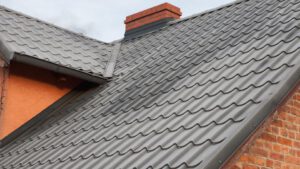When it comes to residential roofing, most systems are low-maintenance, but you should check them twice a year and after major weather events. If you have any questions about residential roofing, schedule a consultation with Roofing experts. Below are some tips to choose the right roofing system for your home. Here are some things to keep in mind when choosing a new roof:
 Your roof is one of the most important elements of your home. Not only is it the largest source of insulation, but it also keeps your home warm during winter and cools in the summer. Residential roofing will protect your home from the elements and prevent costly repairs to walls, siding, insulation, and foundation. If you have ever wondered about the benefits of a new roof, you can contact your local roofing company. They can answer your questions and help you choose the best option for your home.
Your roof is one of the most important elements of your home. Not only is it the largest source of insulation, but it also keeps your home warm during winter and cools in the summer. Residential roofing will protect your home from the elements and prevent costly repairs to walls, siding, insulation, and foundation. If you have ever wondered about the benefits of a new roof, you can contact your local roofing company. They can answer your questions and help you choose the best option for your home.
When choosing a residential roofing product, it is important to consider the style and look of your home. While the primary purpose of residential roofing is to protect your home from natural elements, it should also look attractive. Using colorful shingles or roof tiles can make your home look even more beautiful. Regardless of the style, residential roofing is built to last and to suit your personal preferences. There are many different styles and types to choose from. So, what should you choose?
Asphalt shingles are the most common type of residential roofing material. These materials can be made of asphalt or wood fibers. They usually last 20 years or longer, depending on the manufacturer. Asphalt shingles may also be reinforced with other materials, such as fiberglass or wood fibers. But be aware that asphalt shingles are usually the most affordable and reliable of all roofing options. They are highly resistant to fire and water damage and are low-maintenance.
Before hiring a residential roofing contractor, it is important to understand the difference between commercial and residential roofs. Commercial roofing is more common than residential roofing because it is larger and requires extra weight and scale to withstand the added weight of the structure. On the other hand, residential roofing systems are steeper, whereas commercial roofing systems are flat. For this reason, it is crucial to find a roofing contractor who specializes in residential roofing. The difference between commercial and residential roofs is often the pitch.
Residential roofing is generally more straightforward than commercial roofing. Most contractors are capable of installing residential roofs. But commercial roofing requires special skills, and contractors need to know how to install ventilation, heating, cooling, and drainage systems. Both types of roofs will require repairs over time. For example, a leak repair may require the installation of new roofing materials. Alternatively, commercial roofing may require resealing. In any case, a residential roof will require periodic inspections by a professional.
Commercial roofing companies should be knowledgeable about different kinds of roofs, including metal and solar. They should also know their suppliers and their warranty policies. Residential roofs are usually much smaller and easier to clean than commercial roofing systems. In addition, residential roofs require yearly maintenance. Asphalt shingles are the most common residential roofing material. They are among the most affordable roofing materials. They also have an average lifespan of 15 to 20 years and come in a variety of colors.
Another environmentally friendly option is wood shake shingles. Wood shake shingles are made of recycled wood or sustainably harvested wood. Not only do they look great, but they also reduce the amount of water that runs off the roof. Wood shake shingles also have a long life span and are a solid investment in the world of green living. A residential roof requires less maintenance than a commercial one. Furthermore, it is easier to inspect storm damage and maintain its condition.
Regardless of their type, commercial and residential roofs have different characteristics. Commercial roofs are typically flat, with little pitch. They can accommodate large items. They also need to have drainage systems to prevent water from pooling and overflowing. On the other hand, residential roofs are more versatile and come in many styles and colors. The difference in price and maintenance is significant. The two types of roofs are different, but both need to be maintained.
